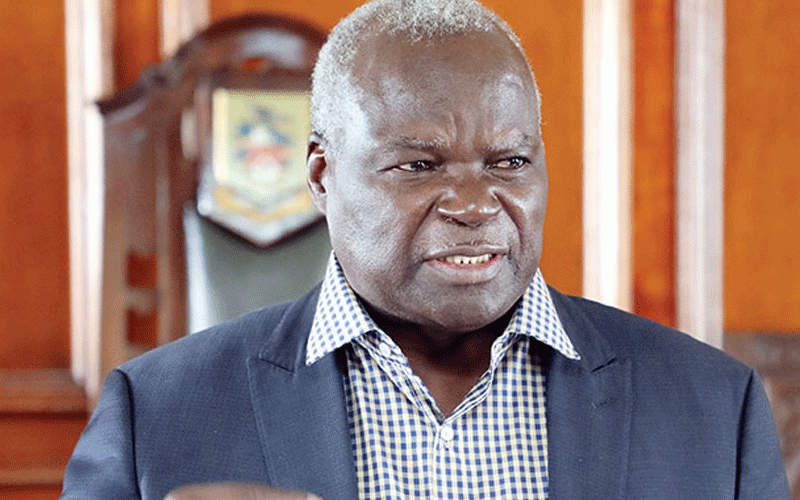
GOVERNMENT has said that civil servants’ salaries will be kept at 12% of the gross domestic product (GDP) and can only grow with an improvement in the economy.
Going beyond that threshold would be akin to inviting trouble in the economy, according to Public Service, Labour and Social Welfare minister July Moyo.
“Any country which pays their workers more than 12% of GDP, that economy is in trouble,” Moyo told an Employers Confederation of Zimbabwe annual conference in Victoria Falls last week.
“So we have adhered to it, we have agreed to it. So we say to the Finance minister go and calculate, sometimes, maybe, you can go a little bit beyond that, but let us remain within the 12% of GDP.”
The bench-marking of salaries to GDP comes as government employees are demanding a minimum salary of over US$1 260 amid a spike in the cost of living.
Government says it does not have such financial resources and recently increased salaries by US$40 to US$364 for the lowest paid employee backdated to September. Unions say the increment does not meet their expectations.
There is no doubt that the government must pay salaries according to the revenue it gets in terms of taxes. However, it appears the small cake is not shared equitably with civil servants getting the crumbs.
The government which cannot pay civil servants a living wage is the same government that recently splashed on vehicles for traditional leaders.
- ‘Zim’s retailers deserve a wage subsidy’
- ‘Zim’s retailers deserve a wage subsidy’
- Africa’s debt conundrum
- High input costs could hit crop output
Keep Reading
Whereas government officials are calling for belt-tightening for the rest of the civil service, such measures appear to be non-existent for senior government officials as they cruise in top-of-the-range cars.
For those at the lower end of the strata, they must bear the brunt of a rising cost of living triggered by the depreciation of the local currency, the Zimbabwe Gold (ZiG).
The ZiG was last month devalued by 43%, wiping out disposable incomes.
In his 2025 Budget Strategy Paper, Finance, Economic Development and Investment Promotion minister Mthuli Ncube said managing the public service wage bill remains critical in creating fiscal space to “sustainably fund key programmes and projects”.
This will sour relations between the government and its employees with the later feeling that they are getting the short end of the stick. Such a breakdown in relations can pose the risk of go-slows or outright strikes.
We believe the government must stabilise the economy which will create good industrial relations.
A stable economy is characterised by the wide use of the local currency by government and the private sector. A stable economy is characterised by low inflation which will promote a savings culture that is key for economic development.
Government is expected to cut its coat according to the size of the cloth which requires an efficient use of the limited resources at its disposal.
It is a hard sell to convince hungry civil servants that the government has no money after it recently splurged millions of dollars on villas, ostensibly for Sadc Heads of State and Government during the summit held in August. The villas remain uncompleted with the possibility of turning it into another white elephant project.
A stable economy is the building block for good industrial relations.






